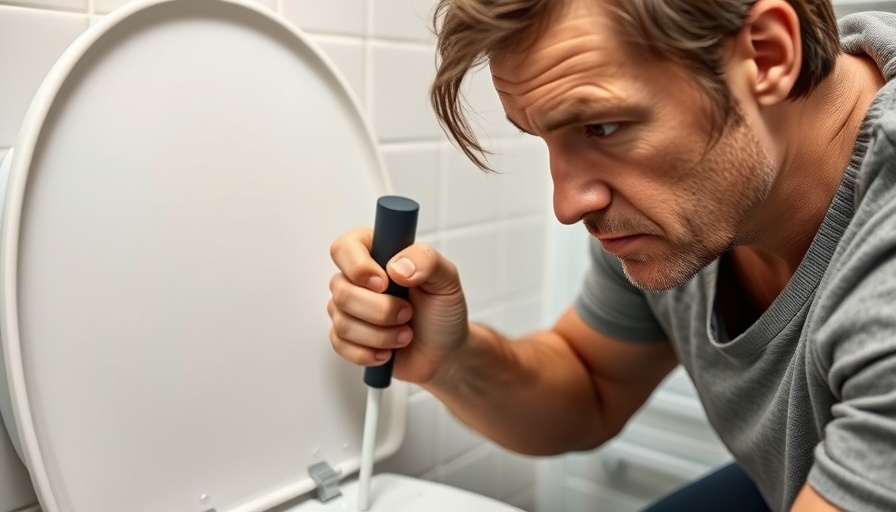
Understanding Toilet Clogs and Their Causes
A clogged toilet is not merely an annoyance; it's an ongoing household challenge that disrupts daily life. Most clogs happen when an excess of waste, non-flushable items, or too much toilet paper builds up in the pipes, obstructing the flow. By understanding the underlying causes, homeowners can adopt effective strategies, such as mindful flushing practices, to prevent future issues.
Practical & DIY Solutions for Clogged Toilets
When faced with a toilet clog, there are several effective DIY methods to consider. First, a plunger with a flange is ideal for creating a tight seal and delivering forceful plunges. Before you plunge, adding hot water and a few squirts of dish soap can help dissolve blockages more efficiently. If these methods are unsuccessful, a plumbing snake can be employed to dislodge tough clogs that a plunger can't reach.
Prevention: Keeping Your Toilet Clog-Free
Regular maintenance is key to avoiding the inconvenience of clogs. Homeowners should get into the habit of pouring hot water down their toilet once a week as a preventive measure against build-up. This, coupled with using natural cleaning agents like baking soda and vinegar monthly, keeps pipes clean and minimizes harsh chemical exposure. Remember: Avoid flushing items like wipes and feminine products to drastically reduce the risk of clogs.
The Consequences of Neglecting Clogs
Ignoring a clogged toilet can escalate into costly repairs and plumbing issues over time. Chemical drain cleaners, while tempting, should be used as a last resort due to their potential to corrode pipes. It's crucial for homeowners to prioritize both regular maintenance and responsible flushing practices to sidestep the continued frustration of toilet clogs.
Final Thoughts: Simple Actions for a Smooth-Running Toilet
Taking proactive steps in maintaining your toilet can save you time and money. By being mindful of what goes into the toilet and utilizing simple DIY remedies, homeowners can enjoy a hassle-free bathroom experience. Remember, regular upkeep is the best strategy for avoiding the headache of clogs in the future!
 Add Row
Add Row  Add
Add 




Write A Comment